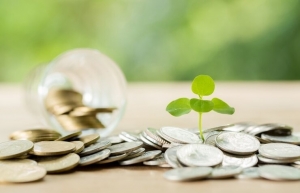INTERNATIONAL INVESTMENT
AND PORTAL
The transformation and transition to a sustainable, low-carbon economy requires vast financial and human resources to support new business models, technology development, and regulatory frameworks.
 Giando Zappia, president, AQUILA
Giando Zappia, president, AQUILA
Vietnam has started its journey of sustainable finance with positive commitment and efforts. The country is making bold strides towards a sustainable future, setting a stellar example of green growth and soicoeconomic development.
With visionary policies and strategic initiatives, Vietnam is on the path to becoming a green, carbon-neutral economy by 2050.
Additionally, holding an instrumental role in aligning banking and financial institutions with green growth targets, the State Bank of Vietnam (SBV) issued an action plan in line with the National Green Growth Strategy to provide guidance on sustainable practices.
Vietnam has also been leveraging international partnerships to support sustainable finance development. Notably, the Just Energy Transition Partnership, with planned mobilisation of $15.5 billion, marks a milestone in Vietnam’s pursuit of net-zero.
However, Vietnam will need to tackle several challenges on its way to promoting sustainable development and realising its environmental, social, and governance (ESG) commitments.
One of the most fundamental challenges lies in the nation’s legal framework. Until now, the country has yet to agree on a consistent definition of ‘green’ or ‘sustainable,’ making it difficult to identify eligible projects for sustainable financial resources. This leads to an urgent demand, and great expectations, for the development of a green taxonomy.
Simultaneously, the SBV, the Ministry of Finance, the Ministry of Planning and Investment, and other authorities are revamping legal frameworks and promoting issuance of green bonds, ESG disclosures, and supporting the stock market’s upgrade.
Another challenge hindering sustainable financial practices is associated with a data gap and lack of information assurance, signifying the demand for an effective measuring, reporting, and verifying system for ESG disclosures.
The advancement of the sustainable finance system requires active and consistent engagement of not only the authorities but also private market players and civil society. Strengthening its legal rule and harnessing its human capital, Vietnam will be able to propel towards a sustainable economy.
Vietnam’s journey towards sustainable finance represents a critical pivot in its economic, environmental, and societal trajectory. As the globe grapples with the urgent need to address climate change and sustainability, Vietnam stands at the edge of an opportunity to not only adapt to global trends, but also to lead in the creation of a sustainable financial ecosystem.
Globally, sustainable finance is witnessing a transformative phase, with Europe leading the charge. Institutions such as the Association for Financial Markets in Europe and the International Capital Market Association are pivotal in driving this shift.
Europe’s progress in project disclosure, particularly the advanced proposals for standardising ESG disclosures, underscores the continent’s commitment to supporting government climate action through transparency and accountability.
In 2023, Vietnam witnessed significant milestones in its sustainable finance journey. Tung Ho Steel and Frasers Property secured sustainability-linked financing, setting a precedent for how Vietnamese companies can leverage green finance for growth and prosperity.
Additionally, the establishment of the Sustainable Finance Sector Committee by the European Chamber of Commerce in Vietnam signifies the growing interest and commitment of the international business community to support greening their operations here.
Looking ahead to 2024, expectations are high for the development of ESG teams within banks, the evolution of the Sustainable Finance Framework, and enhanced ratings from major agencies like S&P, Moody’s, and others.
Moreover, initiatives focusing on capacity building and the exchange of know-how, supported by the World Economic Forum and the Global Green Growth Institute, are anticipated to further strengthen Vietnam’s sustainable finance ecosystem.
Vietnam’s proactive approach to sustainable finance could offer a unique opportunity for the country to leapfrog other economies. By developing an indigenous system that leverages the expertise of mathematicians, geographers, historians, economists, politicians, business people, and civil society, Vietnam can create a holistic and inclusive sustainable financial ecosystem.
 ESG in financial sector driving economic development
ESG in financial sector driving economic development
As Vietnam needs $368 billion to reach its net zero goal by 2050, financial institutions play an extremely important role in mobilising capital to achieve this goal.
 Sustainable banks the way ahead for success
Sustainable banks the way ahead for success
Vietnam’s financial sector is increasingly embracing sustainability practices, although challenges like the need for a comprehensive legal framework, skilled personnel, and enhanced data management remain areas for improvement.



















